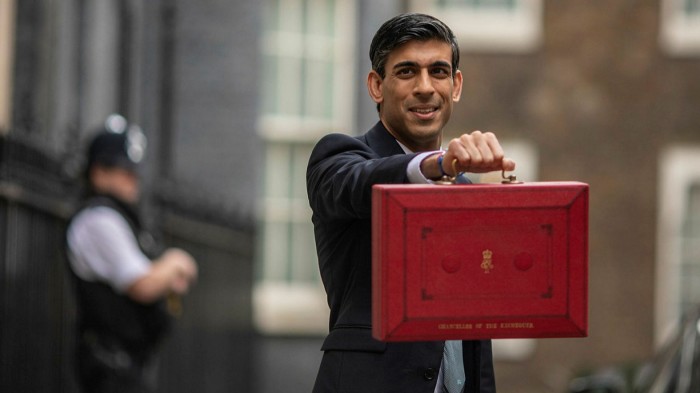Sunak weighs delaying autumn Budget on second Covid wave

Roula Khalaf, Editor of the FT, selects her favourite stories in this weekly newsletter.
Rishi Sunak is weighing options to shelve his autumn Budget — billed as the defining economic moment for Boris Johnson’s government — if Britain is hit by a big second wave of coronavirus.
While the chancellor expects to deliver his Budget as planned, it is a sign of government anxiety over a possible autumn Covid-19 spike that he is ready to delay big public spending decisions until after the crisis.
Fears over a surge in unemployment when Mr Sunak’s furlough scheme ends in October add to his concerns. The Office for National Statistics on Tuesday said Britain had shed almost three-quarters of a million jobs since the start of the lockdown, with ministers braced for many more losses in the autumn. Debenhams, the department store group, was on Tuesday just the latest of a series of employers to unveil job cuts, saying 2,500 staff would go on top of 4,000 already announced.
Mr Johnson said on Tuesday some parts of the economy were “showing great resilience”, but he added: “Clearly there are going to be bumpy months ahead and a long, long way to go.”
Mr Sunak’s allies say he wants to get on with setting a path to recovery in his autumn Budget, which is due to allocate spending for the rest of the parliament and set out a plan to repair tattered public finances.
But one ally said: “While it’s very likely to happen, there is an element of uncertainty. If we have a series of local lockdowns and a second spike, it’s not clear that would be the right time for a Budget.”
In the event the Budget was postponed — probably until spring 2021 — Mr Sunak would be expected to produce a “mini-spending review” in the autumn, allocating spending to departments for just a single year.
Mr Johnson hopes that an enhanced track and trace system, local lockdowns and international quarantines will keep the virus under control, pending the development of a vaccine in the future.
The chancellor wants his Budget to set the economic agenda running up to an election in 2024 or 2025, allocating cash for the prime minister’s “levelling up” plan to spread economic prosperity.
He also wants to set out a timetable for restoring order to the public finances, controlling the deficit and cutting debt interest payments, which are expected to involve significant tax rises later in the parliament.
The Office for Budget Responsibility said in July the government was on course to borrow £372bn this year to pay for the shortfall between tax revenues and public spending.
But Mr Sunak is nervous about whether the autumn would be the right time to start talking about tax rises or spending cuts, if the country was still fighting coronavirus and job losses were piling up.
The number of UK payroll employees was 730,000 lower in July than in March, a 2.5 per cent fall, the ONS said yesterday. It said that 7.5m people were still temporarily away from work in June.
Mr Sunak is facing calls from Labour to extend the job furlough scheme for the worst affected economic sectors, but the chancellor insists it must close at the end of October.
Carl Emmerson, deputy director of the Institute for Fiscal Studies, said there were good reasons to hold a Budget in the autumn because the OBR’s March forecasts were clearly out of date and the chancellor might want to announce further measures to support the recovery.
However, Mr Emmerson said it could make sense to put the full three-year spending review on hold, given the extent of uncertainty over the economic outlook.
Alistair Darling, Labour chancellor during the financial crash of 2008, called on Mr Sunak to extend the furlough scheme, adding that politically it made “common sense” for him to delay the Budget if coronavirus flared up again.
Comments